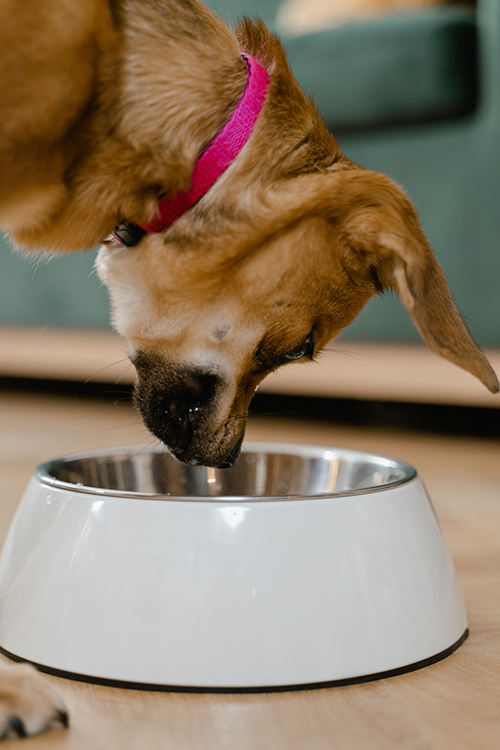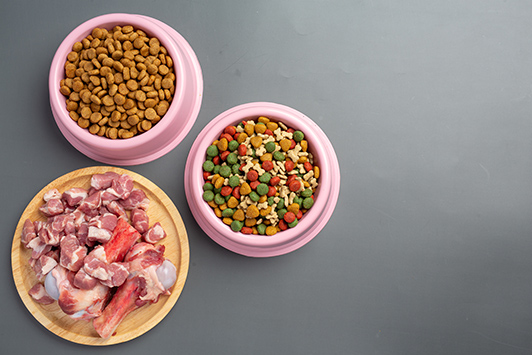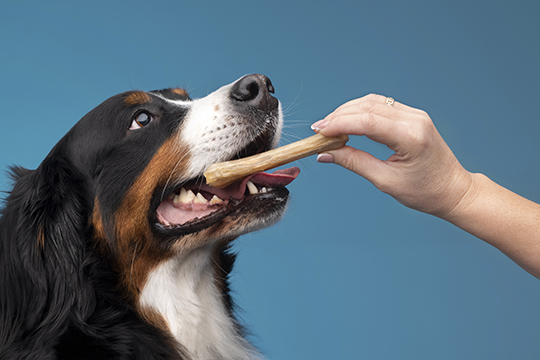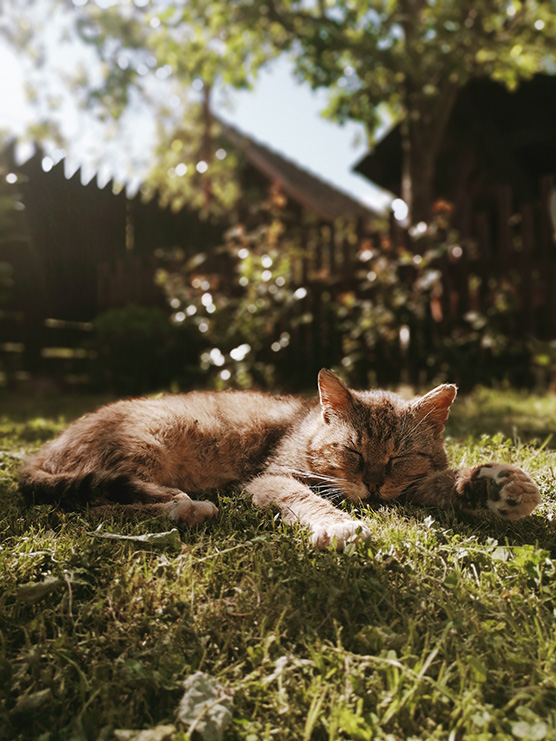Winter can influence your pet’s appetite. Pets eat more in winter because they need a little more fat to stay warm and avoid freezing. As the temperature lowers, pets will move and exercise less. As a result, their metabolism slows and they consume fewer calories.
In this circumstance, they should consume less food that is high in fibre, protein, vitamins, and minerals while being low in calories and carbs. Here are some tips by Dr Shatanu Kalambi, chief vet, of Supertails.com to help you understand your pet’s nutritional needs during the sweater weather!

It is vital to feed your dogs the right foods in the right amounts. Pets require a certain ratio of protein, carbs, fats, vitamins, minerals, and water on a daily basis to sustain regular physiological processes. Many dogs, like different people, have varying dietary needs. Adult pets have different demands than newborn and young pets. Pets who are pregnant, nursing, or suffer from diabetes have unique dietary requirements. To avoid or manage health disorders such as obesity, diarrhoea, arthritis, thyroid, and so on, an appropriate diet is vital. Most pet meals do not satisfy nutritional requirements and necessitate using supplements/nutritional toppers, such as Henlo. These nutrients help your pet’s metabolism and immune system work normally.
For dogs, increase the calorie nutrition in their diet –

Even though dogs love to play and go outside, during winter even they become lazy. According to research, dogs exposed to cold temperatures require two to three times the calories that dogs exposed to more moderate temperatures require. The increased calorie intake produces greater fat storage and insulation while minimising and balancing the calorie loss caused by shivering.
Always serve warm food to aid in digestion –
Aren’t you warming up for your food multiple times during winter? Well, dogs are no different. Dogs digest food similarly to humans, therefore we should infer that warm meals help them similarly to how they benefit us.
Consider giving supplements or a nutrition topper –

If you haven’t already understood the gist of how similar your dog is to you. Here is another important factor which will make you understand the similarity even more. Just like humans need some extra supplements since we’re not always on top of our diets, as the weather changes, many pets’ eating habits change as well. To ensure that they are getting the proper amount of nutrition, you can add supplements to their diet or top up their meals with a nutrition topper.
Keep an eye on their coat and behaviour for signs of nutritional deficiencies –

You know how your knees ache and backache, how you have spots on your body due to deficiency? Similarly, pets, like humans, can exhibit indications of malnutrition, such as dull, brittle coats and dry, flaking skin. Check for these symptoms and make the necessary dietary modifications.
Increase water intake –
Just like your mother is always on your shoulder reminding you of drinking water and keep yourself hydrated even if you have no urge to drink water, pets are the same. Since most pets don’t drink much water in the winter, be sure to include it in their meals so they keep hydrated and always have access to fresh water.






